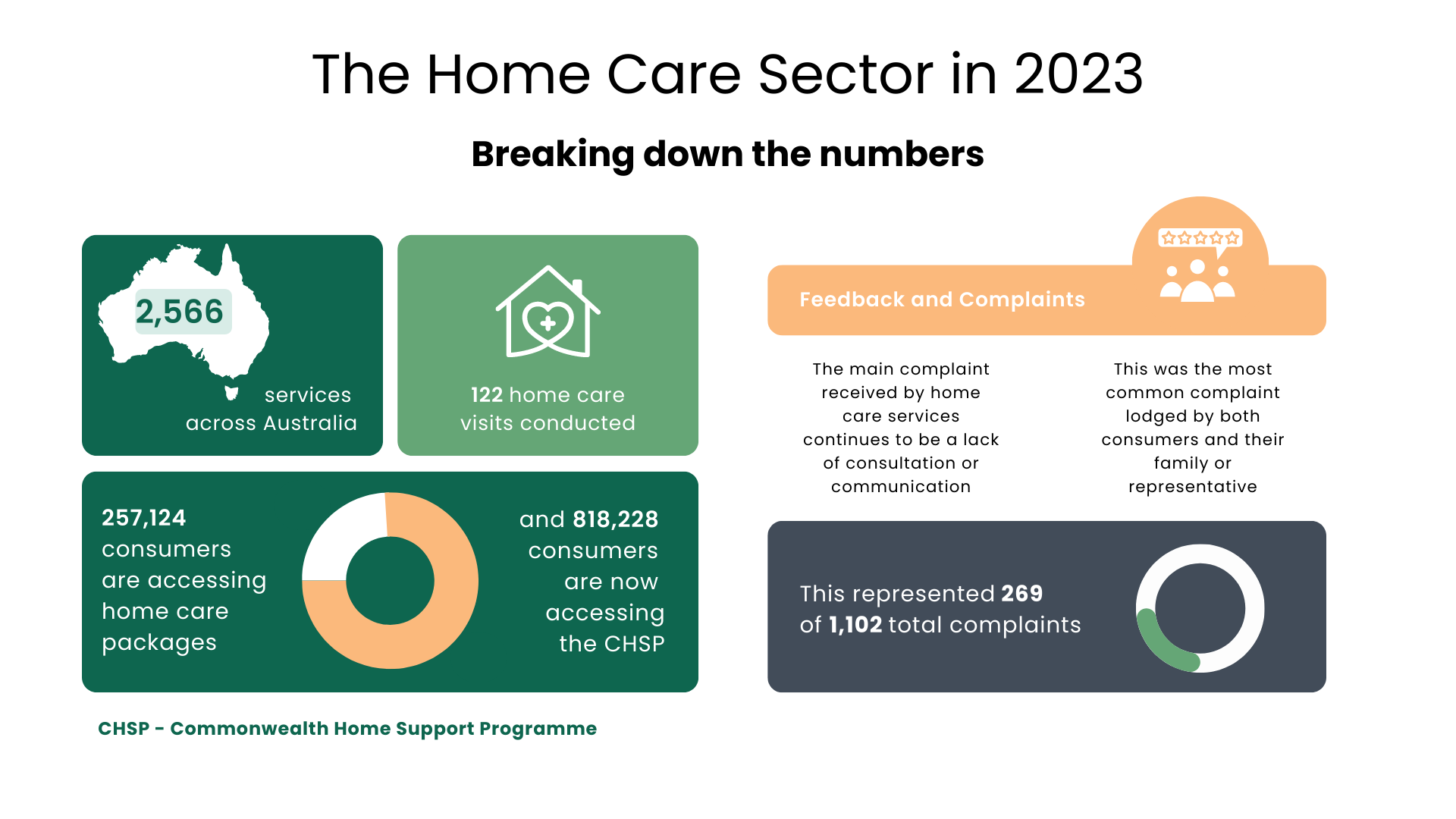The provision of exemplary care for elderly individuals within aged care services is paramount, necessitating strict adherence to the Aged Care Quality Standards.
In this blog, we delve into the performance of home care providers, shedding light on common areas of non-compliance identified in the Sector Performance Report (January to March 2023).

We will also explore the transformative potential of a well-designed clinical management system in effectively addressing areas of non-compliance, ultimately enhancing the quality of care being delivered.
Delivering safe and effective care
Non-compliance often stems from concerns about the safety and effectiveness of personal and clinical care, with Standard 3 consistently identified as lacking compliance.
This standard focuses on personal and clinical care and is a critical component to providing the highest quality care.
A robust clinical management system offers:
- Standardised care plans
- Facilitates accurate sharing of individual needs
- Minimises errors
- Improves the quality of care provided
Establishing effective governance systems
Non-compliance with robust governance systems is a common issue, impacting accountability and overall service quality.
By centralising data management, quality assurance, and performance monitoring, a clinical management system enhances transparency, accountability, and organisational integrity.
This helps to ensure effective governance throughout the service.

Risk management
Effectively identifying and managing risks is essential to minimising harm to those under care.
An effective clinical management system incorporates:
- Risk assessment tools
- Prompts
- Incident tracking
These features enable proactive risk management, creating a safer care environment and promoting wellbeing.
Effectively managing high impact or high prevalence risks
Providers often face challenges in managing significant risks within a home setting.
Promptly identifying risks and implementing timely strategies to reduce them and enhance safety is crucial.
A clinical management system with integrated alerts, reminders, and decision support tools facilitates proactive risk management, ensuring the wellbeing of individuals receiving care.

Optimising workforce composition
Non-compliance is observed in maintaining appropriate staffing levels and skill mix, affecting continuity of care and the overall care experience.
A proficient clinical management system helps to optimise workforce composition by providing insights into staffing needs and facilitating scheduling based on individual care requirements.
This ensures that the correct number of staff, and staff possessing the required qualifications are being sent to provide care.
The Aged Care Quality Standards
Meeting the Aged Care Quality Standards is essential for delivering exceptional care.
Key areas requiring improvement in the home care sector include:
- Personal and clinical care
- Governance systems
- Risk management
- The management of high impact/prevalent risk
- Workforce composition
Compliance with Standard 3 holds particular significance.
Implementing a robust clinical management system helps to streamline operations, improves compliance, and enhances the quality of care provided.
This empowerment of caregivers through technology alongside collaboration of dedicated professionals leads to outstanding home care services.
